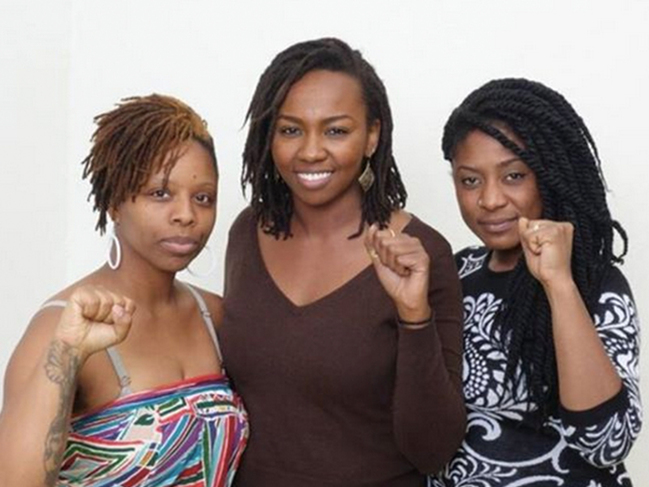 Patrisse Cullors, Opal Tometti, and Alicia Garza, the queer Black women who created #BlackLivesMatter. Patrisse Cullors, Opal Tometti, and Alicia Garza, the queer Black women who created #BlackLivesMatter. With trembling fingers pounding my keyboard, I wrote a poem called "The Cry of the White Man" during freshman year of college. It was a response to a series of people suggesting that my way of looking at the world was influenced by my identities--especially as a straight White man. I had never been asked to consider where my ways of thinking and acting came from, and it shook me to my core. I felt scared and defenseless. Why were people judging me based on things I didn't choose, identities I didn't ask for, actions I never took? Although I am willing to publicly explore almost anything about myself and the way I have been conditioned to think and act as a straight White man, I will spare you from reading my poem, "The Cry of the White Man." Suffice it to say the poem included lines like these: Go ahead, judge me on it A decade later, as I read the abstract of Westfield State University professor Robin DiAngelo’s article, “White Fragility,” my fingers trembled once again. White people in North America live in a social environment that protects and insulates them from race-based stress...leading to what I refer to as White Fragility. White Fragility is a state in which even a minimum amount of racial stress becomes intolerable, triggering a range of defensive moves. These moves include the outward display of emotions such as anger, fear, and guilt, and behaviors such as argumentation, silence, and leaving the stress-inducing situation. 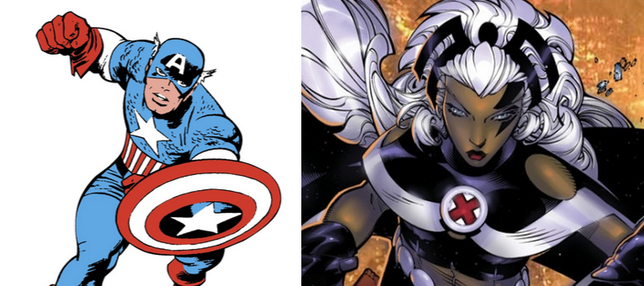 As a White American, I intimately know each of these reactions to this idea of “race-based stress.” The poem I wrote in college could have been primary source material for Prof. DiAngelo's article. She had laid me out on the table and dissected me. While recovering from what I was reading, I began to wonder about the other end of the spectrum: race-based stamina. Black Americans are reminded of their Blackness all day, every day--a stream of reminders, most of them accompanied with overt or implied negativity about Blackness. If a Black person has to swim through that all day long, they would have to develop an incredible resilience or they wouldn’t be able to get out of bed. I marvel at the fact that Black people can stomach the daily facing of a society that consistently devalues them, let alone stand reaching out across the racial divide to engage in good faith with people who largely refuse to acknowledge the depth and stench of this racist stew. When it comes to understanding identity politics, I try to always keep an intersectional perspective (understanding that different identities intersect and impact each other--my experience of being White is also affected by my gender, class status, sexual orientation, etc.). So I began to think about fragilities beyond Whiteness. If White fragility exists because White people have the privilege of being largely protected from race-based stress, then what about the existence of fragility based on other privileged identities? Specifically, do male fragility and hetero fragility exist? Want to get your ass whipped in the high school men’s locker room? Just say something that implies that the biggest guy there is either gay or a woman. We men are brought up to be so fragile in our masculinity and our sexuality that we feel obligated to defend ourselves at the slightest threat. We must not only deny the accusation, we must assault our accuser to make sure they never say something like that again. Meanwhile, every day, women are constantly reminded that much of our society thinks them inferior to men. And people who identify as queer are endlessly reminded that their sexuality does not compute with the way sex is "supposed" to be. People with these identities must develop a resilience, which I have never needed, in order to survive, maintain self-respect, and engage with a world of power structures that disapprove of their very existence. Do the separate fragilities/resiliences that accompany race, gender, and sexuality intersect to create a sort of intersectional identity fragility/resilience? If so, who is least likely to be resilient in their engagement with the world around them? Who, when presented with real, existential threats by a hostile world, is least likely to be prepared to stare those threats down and emerge victorious? Beyond just staring down those threats, who is least prepared to do the truly hard work--to sit with those existential threats, forge a path forward regardless, and even come to compromise with those threats when necessary? The people least likely to be ready for such resilience are my brethren--straight, White, men. And people bearing identities we have labeled as inferior--Black, queer, female, immigrant, fat, transgender, disabled, among others--carry with them, by necessity, a potential for resilience beyond what someone like me is likely to ever know. But whose leadership have me and my brethren historically bought into, inspired by projections of strength and resilience? With fragility and resilience in mind, I celebrate the #BlackLivesMatter movement which is shaking the foundations of our country. For 400 years, we’ve claimed to be the land of equality, while building our economic and political might on the backs of Black and brown-skinned people, who we punish for their contributions. None of us, oppressors or oppressed, are free, though our chains are different. Black and brown-skinned people, immigrants, women, queer, transgender, and financially-poor people in America struggle to survive within systems of material and economic oppression. Meanwhile, people with privileged identities like me are corralled into acting as storm troopers in the battle against those not like us, defending a system that provides for us materially while destroying our humanity in servitude to a system of violence and savagery. The people best positioned to lead us to freedom are the people who’ve had to fight for it every day of their lives. When I am learning to choose to follow the leadership of women, of Black people, of queer people, it’s not out of a sense of guilt, but a realization that these are the strongest people we’ve got in the monumental struggle to actually live up to the ideals we profess as a country--freedom, equality, and opportunity. Who better to lead the battle against the White supremacist system (which isolates me and my White brethren and forces our complicity in harming people of color) than the Black and brown people that are targets of that system? Who better to lead the charge against patriarchy (which forces me and my fellow men to live up to illusions of masculinity that destroy our emotional health and our ability to connect with people) than the female-bodied people that are targets of that system? Who better to lead the fight against heteronormativity (which restricts straight peoples’ social circles, sexualities, and freedom of expression by instilling in us a deep fear of being labeled gay) than the GLBTQ people that are targets of that system? In the process of learning to de-program and re-program myself to follow the leadership of people that society trained me to brush aside, I am allowed to unfold more fully as a human being. So after 32 years of living, I finally understand that I do not need to be in charge of everything I'm involved in. That realization should go without saying, but I can see now that I was raised to expect myself to be capable of leadership and decision-making in any arena I might find myself in, simply because society told me that I am smarter, more objective, and wiser than people who aren't straight White men.
Now I see such delusional expectations of myself as a form of velvet chains, endowing me with both supreme confidence in myself and also a crippling fear of not being able to live up to what I believed I was capable of. These realizations are only possible thanks to the opportunity I have to practice following the earned leadership of Black people, women, and people who identify as queer. Luckily for my fellow straight White men (I love you guys!), our leadership is still critical and needed. Here are some ways that we can work to forge a new, redefined mantle of leadership as society's privileged children.
Abandoning the delusions we were raised on, we can lead and inspire our brethren to be strong enough to let go of that which we never earned. We can start over. #blacklivesmatter --Abe Lateiner  Some people ask why I, a person claiming to be fighting for the liberation of all people, would choose the image of a stormtrooper to represent myself. Isn’t a stormtrooper the opposite of the rebel fighter I’m aspiring to become? Yes and no. The empire I live in was founded by men who assumed that as White, land-owning males, their lives quite literally mattered much more than others. This empire depends on storm troopers to do the day-to-day dirty work of maintaining the supremacy of White, land-owning males. Through strategic application of silence, speech, shaming, slander, and skepticism, masses of stormtroopers ensure the maintenance of power in the hands of imperial lords with minimal effort (or even awareness) by those stormtroopers. But not all stormtroopers are created equal, and the distinctions between them are significant. Spoiler alert: at different times in my life, I’ve played each of the following roles:
As duped stormtroopers, we don’t realize that we are doing crucial dirty work for the empire. The emperor knows that any human population living in oppression will spawn free-thinkers who are able to imagine future alternatives to the reality that they live in. A free imagination like that can inspire others to revolt and harm the stability of the empire, and so the emperor knows that the peoples' desire for freedom must be channeled into illusory "reform" efforts in order to prevent violent revolution. The duped stormtrooper offers just the channel for this potentially harmful energy to be directed away from true revolution. After all, if the empire allowed for no reform movements, then the masses could see no legitimate channel for directing their thirst for freedom. Revolution would come. It's us duped storm troopers who appear to be challenging the system who in fact help secure its stability. We are perfect for this task because we help our potential like-minded stormtrooper recruits to diffuse their freedom energy instead of harnessing it for revolution. “Hey, remember to practice nonviolence,” we say. “Let’s remember that change begins at the ballot box!” I've voiced support for revolution, but remained silent while rebel forces struggled to build power. I’ve railed against the empire’s violence, but advocated for “peaceful protest” to the people who live their lives under the gaze of imperial rifle scopes. And I’ve shed real tears at the hardships endured by the empire’s unwanted classes, while simultaneously not believing that those people were intelligent or capable enough to fight for their own liberation. I still occupy the ranks of the duped, but I'm committed to learning to make the leap to become the fourth (and most dangerous) stormtrooper of all--the traitorous stormtrooper who fully understands the empire that has produced him. This stormtrooper sees that he is being used to serve a power structure that provides him with some degree of material comfort, but would throw him to the wolves the moment he became a real threat. The traitorous stormtrooper sees that he can never really escape the system he was born into and that he can use his knowledge and experience of the system to attack it at its weak points.
What does it take to make the leap from dupe to traitor? First, I must be willing to question all of my understandings of the world and my identity and role in it. If the possibility exists that I have been programmed to deny that I wear a distorted stormtrooper visor, how can I refute such an idea? How can I rely on common sense to reject the possibility that what I know as common sense is often false or at least incomplete? In an empire built upon lies--lies about how the empire began, lies about what it did to people who stood in its way, lies about how it achieved material dominance---everything a stormtrooper can “know” must be up for question. 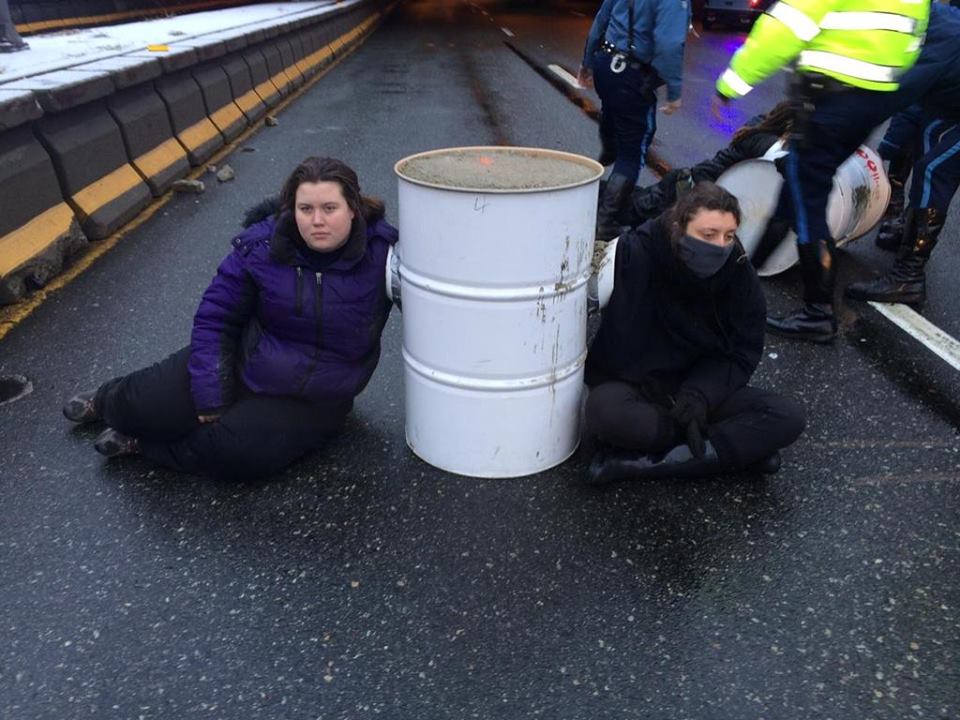 Yesterday's shutdown of I-93 here in Boston caused many people to come out of silence about #blacklivesmatter. Most of the new voices I heard were furious about protesters stopping up a major highway. It also caused people who had previously supported Black Lives Matter to say "Look, I support the movement, but this is ridiculous/stupid/unhelpful." It was like Black Lives Matter stopped being something cute and ignoreable. Now it was in our faces. We are trying to bring down a system of racialized power and oppression that was designed to keep power out of the hands of Black people. This system has worked extremely well. In fact, it's worked so well that to maintain our system of racialized privilege, we only need to keep doing what we're doing. From our highest echelons of power to our lowest castes, we all play our part in maintaining racism. Do we believe that a system of power like that, that operates almost silently, and quite smoothly on an individual, social, institutional, and systemic level, is going to go quietly? No, if we believe that Black Lives Matter AND that we live in a society that doesn't yet adhere to that statement, then we'd better dig in for inconvenience. We're talking about uprooting a 400 year old, healthy, well-rooted tree here. The birds and squirrels are going to have to be inconvenienced. Did I feel a moral calling to stand up for racial justice last week? Then inconvenience won't sway me from my position today. That's the thing about a moral compass. If it can be swayed by inconvenience, then either I was misreading it or my compass wasn't calibrated correctly in the first place. Instead of wringing our hands about "Why wasn't (insert action here) done better/perfectly," let's ask ourselves what we can do, individually and collectively, in the places we are, with the identities we have, with the tool we have, to dismantle the tree of racism. And let's dig in for inconvience. #shutitdown #blacklivesmatter --Abe Lateiner 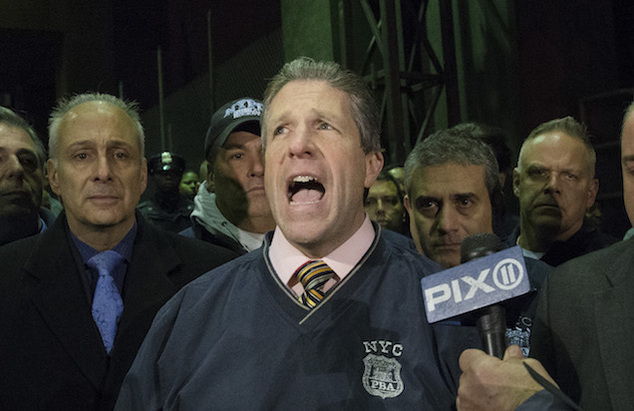 This holiday season, I ask us to please remember those among us who live amidst crushing poverty. Every day, there are underprivileged people among us who are helpless, living under the heavy chains of poverty. It is a shame that in this land of plenty, so many of these poor individuals move about their day under the blanket of debilitating lack of resources. When the NYPD Union president basically declares war on anyone who thinks that police brutality is a real issue, we must not allow his poverty to make us turn away. His uniform, badge, and tie must not hide his poor, downtrodden ability to apply complex thinking. This suffering, impoverished man has not been taught to see that in fact, it is possible to rage against police brutality and condemn the murder of police officers. Due to what may be intellectual malnutrition, this man's brain seems incapable of seeing beyond "either/or" thinking. This manifests itself in the belief that everyone is either a supporter of all police at all times or an enemy of all the police at all times. Jesus didn't put us here to allow this kind of poverty to go unattended. Let's ask ourselves, "What can I do to offer this underprivileged man a fair chance to become a well-adjusted member of society?" 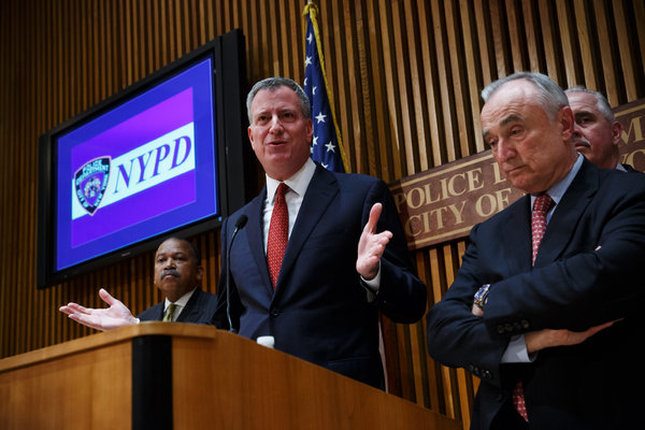 When the mayor of New York asks grieving, furious Americans to give up the right to protest, that mayor is clearly suffering from a heartbreaking lack of ability to bear witness to suffering and rage. As mayor of a city, Bill de Blasio's job is, among other things, to bear witness to the lived experiences of his people. This tone-deaf attempt to shut people up who are protesting their government's tendency to, of all things, shut them up with brutal and often deadly force, reveals a deep poverty in Mayor de Blasio that we should all dig deep to alleviate. Please consider giving what you can to poor Mayor de Blasio! 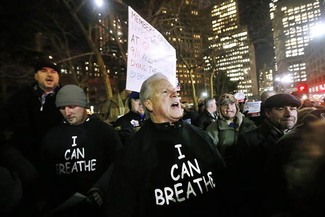 When White men take to the streets of New York to declare to the world that they "can breathe," thanks to the police, my heart goes out to these poor guys who have revealed their poverty of vision. They have been deprived and underserved, these underprivileged souls. Their training in blindness to privilege and oppression ensures can't see that their message ("Police ensure my safety as a White person!") perfectly reinforces the narrative of the protesters that they are trying to undermine ("Police ensure the safety of White people!"). Please consider giving what vision you can afford to these unfortunate, downtrodden, folks. This is America, folks! We can help the poor! When the governor of Massachusetts admonishes protesters for being "disruptive," I close my eyes and shed a tear for this impoverished, suffering soul who could be successful member of society if we could only help him to see his potential! Tragically, this man carries the weight of an impoverished sense of history. Let us pray for this poor person who cannot imagine how disruption could possibly work towards justice. Deval, we won't give up on you. We believe in you and I hope readers will consider donating their basic understanding of history! Many White people have a deep, unnamed fear that the successful struggle for Black liberation will result in the "tables flipping," creating a country in which White people are treated as second-class citizens by a powerful Black majority. We should all commit to digging deep and giving all we can to alleviate the grinding poverty of experience that lies underneath this fear. Most White people suffer from a lack of Black friends, with no resources to draw on when it comes to actually knowing what it's like to be Black in America beyond the idiocy of popular media. This poverty allows us to maintain a vision of Black America as a monolithic, single-minded entity bent on taking power back from Whites for the sole purpose of revenge. I am happy to report that J. Cole has already given White people the following charitable donation to minister to our poverty. Please, let's match his donation by educating ourselves and others as to the deep sense of love that is the bedrock of liberation struggle. Maybe we can even band together to create a National Association for the (Mental/Social/Spiritual/Creative/Empathetic) Advancement of White People which can help us organize to lift us out of the poverty so many of us live in. Let's listen, and be thankful for the spirit of giving to the poor during this holiday season. #blacklivesmatter 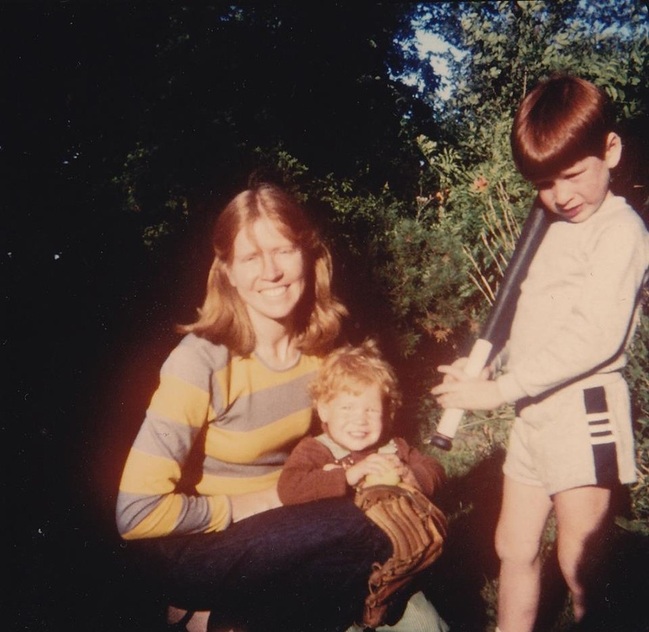 As I begin to understand the way I'm programmed, there come fleeting moments of being able to see that even the way I see my Whiteness...is through the lens of my Whiteness. Then comes beautiful surrender. I cannot see outside myself. Surrender. Surrender. Within this surrender, I begin to see that everything I "know" about the way the world works has been "known" through a supremacist framework. Society chose nearly all of my identities as the "superior" ones. And it wasn't long before I saw that those labels of superiority were disconnected from my lived experience. I witnessed and participated in morally repulsive activities carried out by people who shared my supposedly "superior" identities. Few people were available to help me process this disconnect. What does that experience of deep dissonance do to a child's brain? My foundations couldn't support the weight society placed upon them, and I became a defensive, scared, fragile person. Because the world insisted and still insists that I am superior, while I know and have always known that I am not. An unstable foundation compromises the stability of the entire structure. Today, beginning to see what Whiteness has done to me, so many of the things I *thought* I knew and understood are now revealed as inverted reflections of a fun-house mirror. All the grooves of life I've inhabited and loved and hated and envied and missed and feared...were just my perceptions under the influence of the powerful narcotics of supremacist thought. To realize this is to see that the ultimate prize is within my grasp: a reset button. A chance to see everything for the first time again, to "not know" what the world is like. Up could be down. In could be out. I have the chance to throw open every door that has been sealed with bitterness and resignation. A return to a childhood in which everything is possible, fresh. When I say that I support and will fight for Black liberation for my own sake as a White person, I mean it. For 30 years, White supremacy smiled in my face while shackling me to impossible standards of superiority that I could never attain. Invisible shackles. Black Americans have known this about White Americans, they have been forced to know this about us, better than we White people ever could. My revelations are old news...just new to me. White, man, straight, bearer of any of America's other privileged identities...you want freedom from the isolation and spiritual death that you were born into? Black liberation is liberation for all. #blacklivesmatter #invisiblewhiteshackles --Abe Lateiner 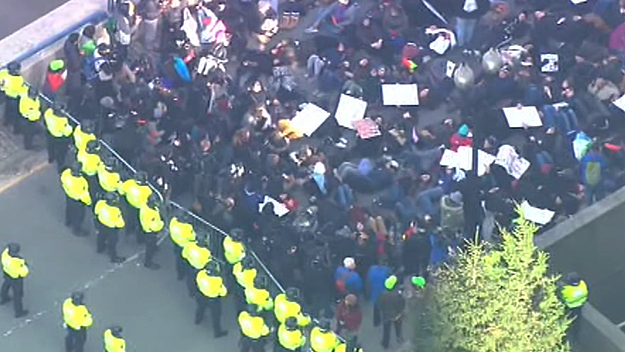 For 400 years now Black people in this country have fought to organize and be recognized as first-class citizens. At every turn, many politically-mainstream Whites have responded to such movements with furious denial of the existence of racial inequality. Yet open up any mainstream K-12 American history textbook, and all the major movements towards Black liberation are held up as courageous expressions of humanity which have advanced the American experiment. You think MLK was roundly celebrated and praised by White people when he was alive? You think all the White peoples' lips trembled in admiration of Rosa Parks' courage while she was riding in the front of "their" bus? So if you're spending time fuming about those pesky #blacklivesmatter actions and how much overtime pay it's costing, please also spend some time planning what you'll say to your grandchildren when they ask you what you did during the civil rights movement back in the early 21st century. 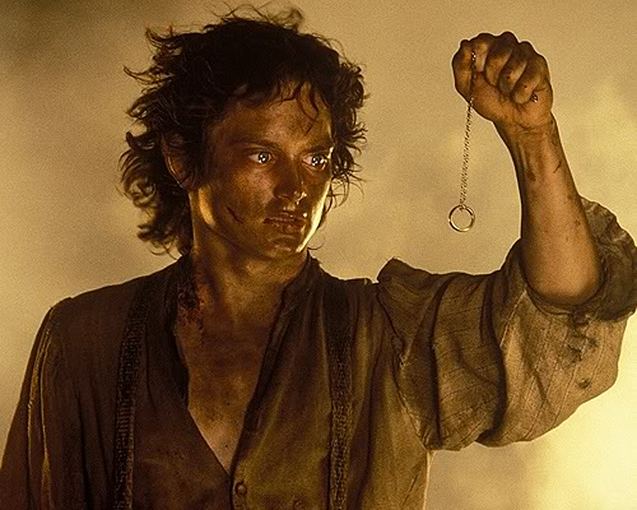 Is the One Ring at the center of J.R.R. Tolkien's "Lord of the Rings" trilogy is just a metaphor for Whiteness? Bear with me here, folks. *The One Ring was created by Sauron to concentrate and maintain his power over all of Middle Earth. The concepts of "White" and "Black" were created by the early American elite in order to maintain their power and wealth by discouraging poor African-Americans and European-Americans from uniting in opposition to the ruling class. *The power of the One Ring is, among other things, that it offers invisibility to the wearer. But this comes with a price: the Ring also slowly corrupts the bearer, leading the person to isolation and misery (as we see in the character of Gollum). The bearer slowly turns into a narcissistic, angry, loner, bent on accumulating power at the expense of their relationships. As bearers of Whiteness in America, we get to move through our lives without our race drawing attention to us. We are assumed to be "normal" Americans. Our actual diverse ethnic backgrounds (German, Irish, Italian, Polish, etc.) are largely unnoticed, while dark-skinned people are almost always seen as outsiders, exotic, dangerous, and "ethnic." Thus White people are able to move around much more easily in America. BUT...there is a price to the safety of Whiteness. To accept the comforting "normalcy" of Whiteness is to disconnect oneself from our humanity. The flip side of seeing Whiteness as "normal" is seeing Blackness as the "other," the undesired, the ugly, the dangerous. The safety of Whiteness requires the creation of Blackness as something to which we can be opposed. The result? White Americans are often socially isolated, even in our "own" communities. We're so used to separation that we forget how to be close, even with those we would call our racial kin. *People are drawn to the One Ring because it seems to offer limitless power to be wielded. But in fact, the Ring itself ends up wielding the bearer, using their physical incarnation to do its will. The seduction of Whiteness is powerful...it offers the bearer preferred treatment in almost every realm of American society--if we are seen as bearing Whiteness, we're more likely to be seen as smart, objective, wise, moral, innocent, pure, and deserving. But the price we pay for this preferred treatment is that we become foot soldiers in the war against Blackness; by cashing in on our Whiteness (even unintentionally), we ensure that Black people remain second-class citizens. Thus we become, as the bearers of Whiteness, instruments in the maintenance of power. *Part of Sauron himself is contained in the One Ring. When it is destroyed, Sauron is destroyed as well, and this is what frees all of Middle Earth from tyranny. White Americans have so bought into the made-up construct of Whiteness that we take it for granted. If we could expose the myth of Whiteness for what it is, it would shake our identities to the core, while offering us a chance for liberation along with all the people that Whiteness currently subjugates in the service of its maintenance. #blacklivesmatter #OneRingtoRuleThemAll #wemadeittomountdoom #throwitinthedamnfiresofmordoralready #wearebetterthanthis In my last post, I proposed that when groups of people with similar privileged identities (Whiteness, maleness, or heterosexuality, for example) get together, they are more likely to make choices that oppress others. And then what do you know? In early November, I found myself in a room packed with over a hundred financially-wealthy young people at Resource Generation's "Making Money Make Change" retreat. It was an absolutely gigantic concentration of privilege, creating just the type of situation I had analyzed in my last post. So...what happened? Well, the weekend was full of powerful moments of learning, but in particular I'll never forget the presentation analyzing our aggregated financial data. To make a long story short, we learned that we financially-wealthy people in the room had given away about 12% of our income in 2013. Not bad, right? Then, the presenters shared what percentage of our net financial worth that given-away income represented--one half of one percent. Yes, that's one-half of one percent of our net financial worth. And we are the (supposedly) radical wealthy young people, the ones working to leverage our privilege to upend capitalism and create a new world of equity and justice. And for a reality check, the poor, working class, and middle class allies in the room had also given away about 12% of their income...which in their case actually did approach 12% of their actual net financial worth, unlike those of us with brokerage accounts and trust funds. That presentation was a tough wake-up call, and it framed the rest of the weekend. We attended activist-led trainings, peer-led workshops, formed ad hoc committees, and made giving plans, all to help us identify and overcome the psychological and material barriers that had so far prevented us from moving the needle on our disproportionately tiny giving trends. Here's a sampling of the outcomes of this weekend of concentrated privilege: MAJOR GROUP COMMITMENTS
SAMPLING OF ANONYMOUS INDIVIDUAL COMMITMENTS FROM RETREAT ATTENDEES
On the plane ride home, I realized I owed readers this caveat to my previous post: concentration of privilege does not necessarily guarantee that said concentrated privilege will be wielded as a tool of oppression. In fact, the concentration of privilege can create a situation in which we can actually travel further on the road to collective liberation than any of us might be able to do individually. But what needs to be in place for this counterintuitive privileged move towards liberation to happen? It comes down to the idea of organizing, which I have struggled to understand for a long time. 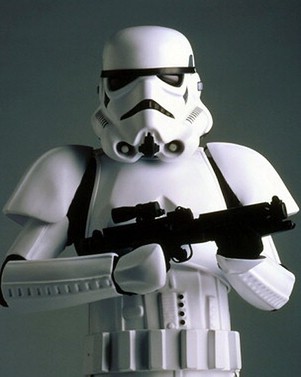 The Making Money Make Change retreat was about organizing--getting people together and helping each other to see and realize our collective power as financially-wealthy young people with unique opportunities to bend the arc of history away from the systems of privilege most of us were been born into and enjoyed. But I am starting to see that being organized wasn't a new experience for me. No, I was born organized. Born into a body and context of privileged identities (White, male, straight, cisgender, American citizen, English-speaker, family wealth, tall, thin, able-bodied), I am born organized. To be organized is to be a part of a powerful collective of people who are fighting for a common cause. Systems of privilege can only be built through collective, organized effort. Many people before me fought and won access to deep, societal power long before my ancestors were figments of someone's imagination. Privilege-organizing has been so effective that individuals like me don't even have to fight anymore to enjoy what "my people" have organized for. In fact, we don't even have to know about our privilege or the organization that backs it. What's more, the more we are conscious of the power we have been given for free, the more we become a threat to the systems of privilege that maintain our power. I was born into membership with nearly every privileged group in American society. It was largely a downhill coast to organize me as part of those groups, since memberships to groups like "male," or "White," or "straight" are mostly assumed, largely unspoken, and offer significant material benefits. I was born into a stormtrooper suit. Just like the faceless soldiers from the Star Wars series, I have been given armor by the Empire, armor in the form of identities (White, male, straight, etc.) which offer material safety and the security of being a part of a powerful, militaristic society. But unlike the Star Wars stormtroopers, I have been trained to not see that I'm wearing a suit. "You're not a crony to the Empire, you're just naturally better suited for power than everyone else!" is the gist of the messages that have surrounded me my whole life. The cognitive dissonance caused by the obvious falsity of that statement has shaped my psyche in many negative ways. I've been an organizer for the Empire for 32 years. Unlike the nearly-Sisyphean organizing battles that must be constantly waged by those people who wish to be free from grinding, direct oppression, my prime organizing strategy as a child of privilege has been ignorance, material comfort, and inaction. Returning to my conundrum: what conditions can allow for a concentration of privileged people to consciously move towards liberation instead of oppression? I call the Making Money Make Change retreat's approach SEE-organizing, DE-organizing, and RE-organizing class privilege. The retreat process revealed my stormtrooper suit and helped me to see that it's not who I am, but what society convinces me that I am. Once I can see this suit, I can begin the process of desertion, leaving the relative safety of the dominating, parasitic Empire. Then I can to integrate myself with a new organization--the Rebellion. In doing these three things, I can play a part in collective liberation--the struggle for freedom for all people, including those who live by oppression and those who live under it.  I left the retreat committed to inviting other people of privilege to explore the unspoken privilege organizing movements that we've been born into and trained not to see. I spent much of the past ten years lashing out at myself and other privileged people for the part we play in oppression movements. Now, thanks largely to the people I've met in and through Resource Generation, I see that my hatred for and rejection of what I was born into is unfair, counterproductive, and worse, a powerful tool of oppression--because nothing keeps conscious privilege silent like guilt. It has taken immense, sustained individual and community efforts (mine included) to help me begin to see my stormtrooper suit. It will take my lifetime to learn to break out of the restrictions of that suit and re-organize against the empire it represents. We're talking about deprogramming the training I have undergone since I was born up until now. And now. And now. And now. To honor that uphill effort, I have to move forward with a sense of love and compassion for myself and others, we who were born to be foot soldiers of an Empire that fulfills our material needs while strangling our sense of humanity and our spirit. |
Abe LateinerIf real change requires people to take risks, what would it mean for a straight, White, cisgender male, tall, thin, able-bodied, English-speaking US citizen with class privilege to take risks? Archives
March 2020
|
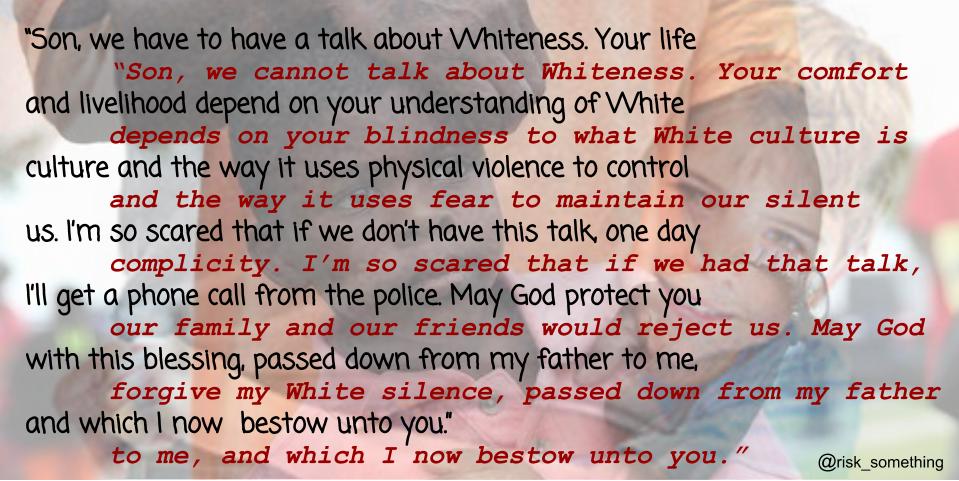
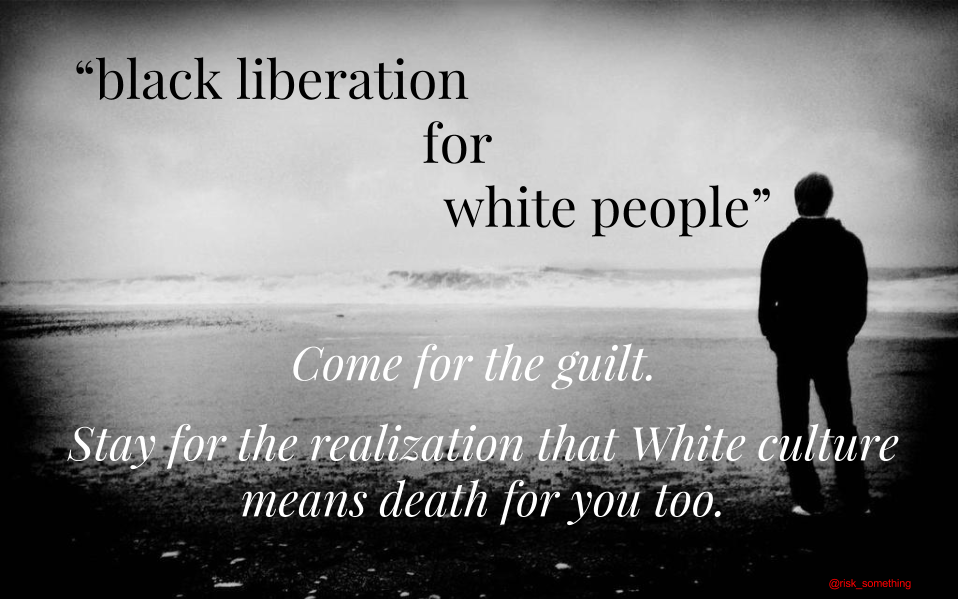
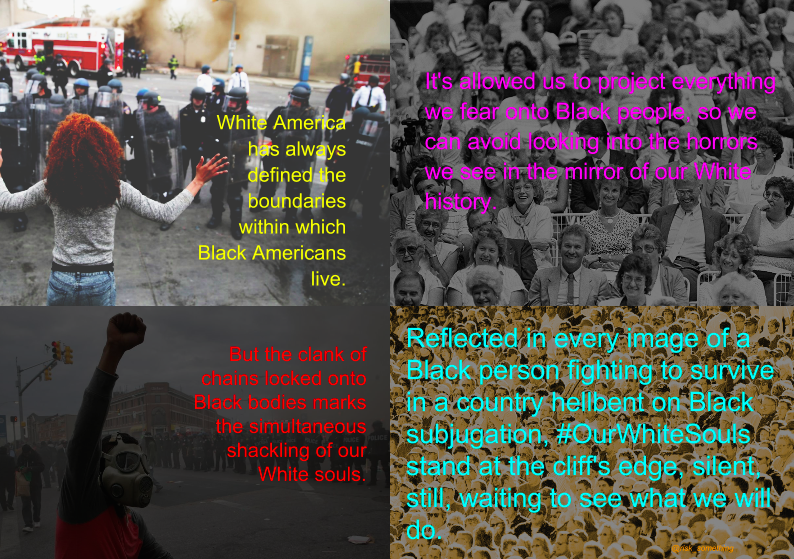
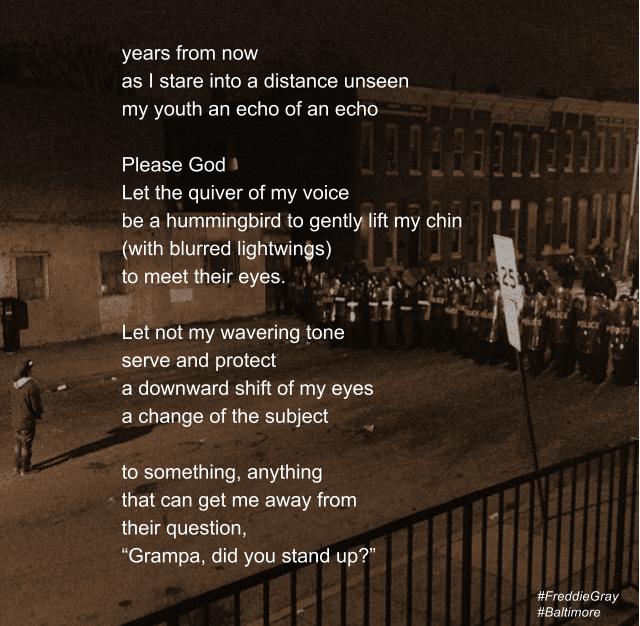
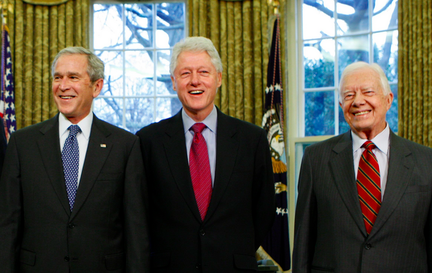
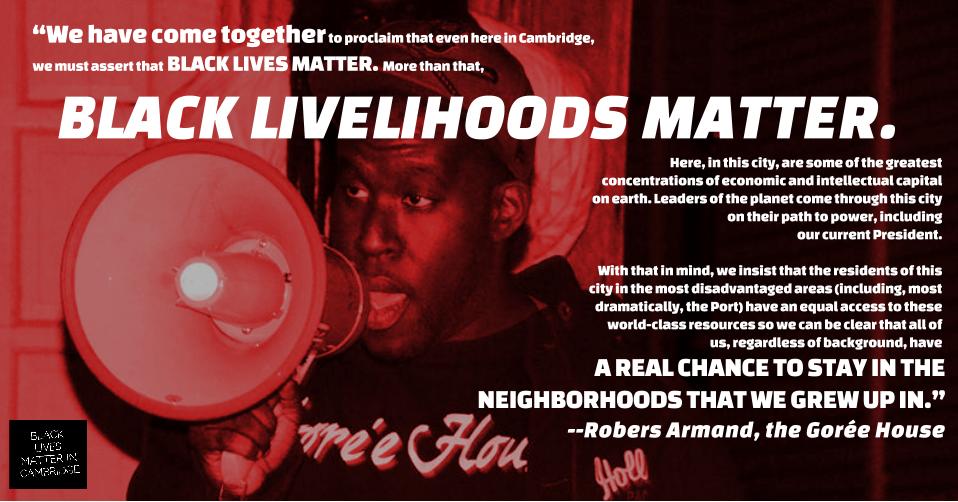
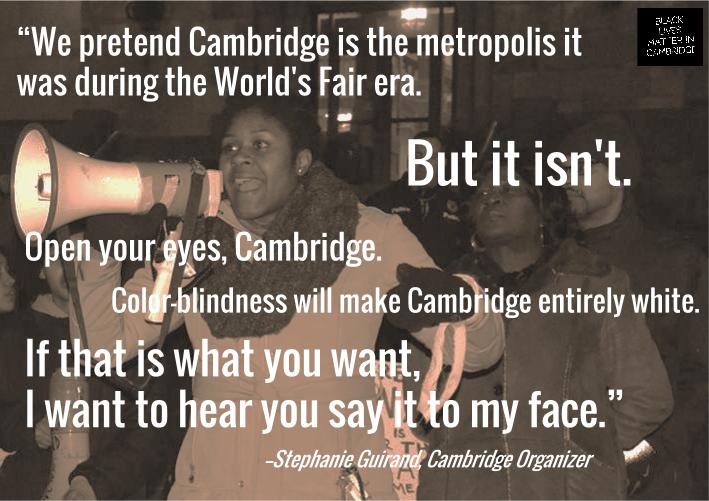
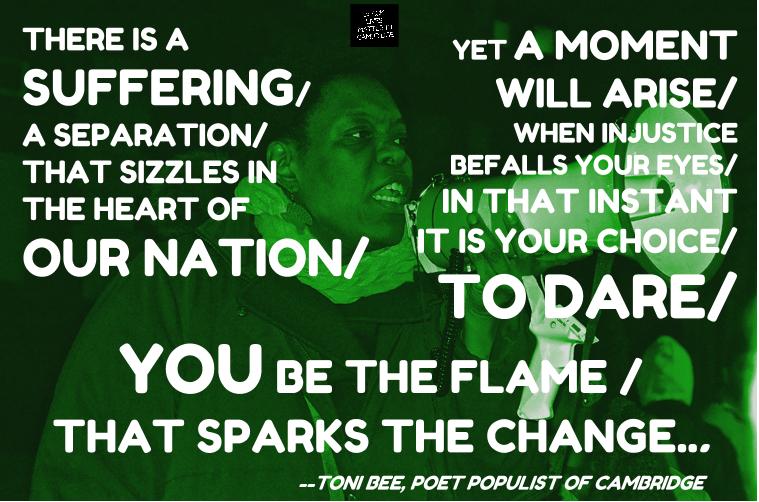

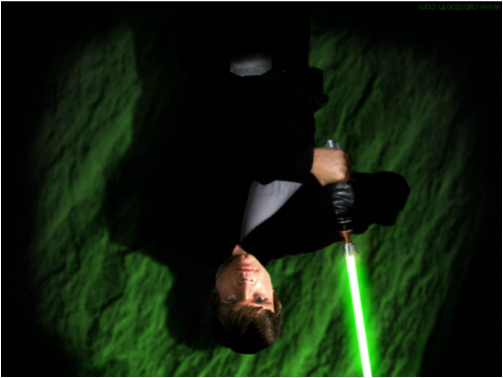
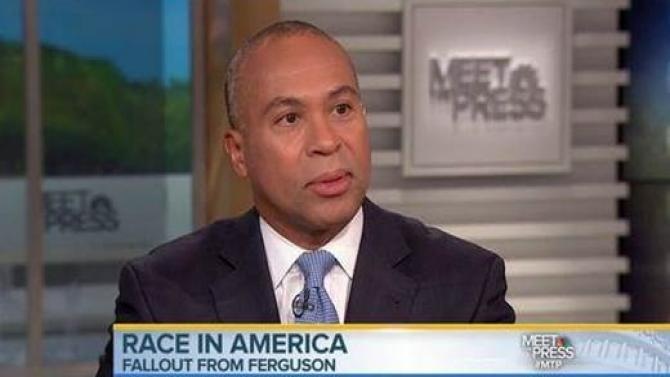
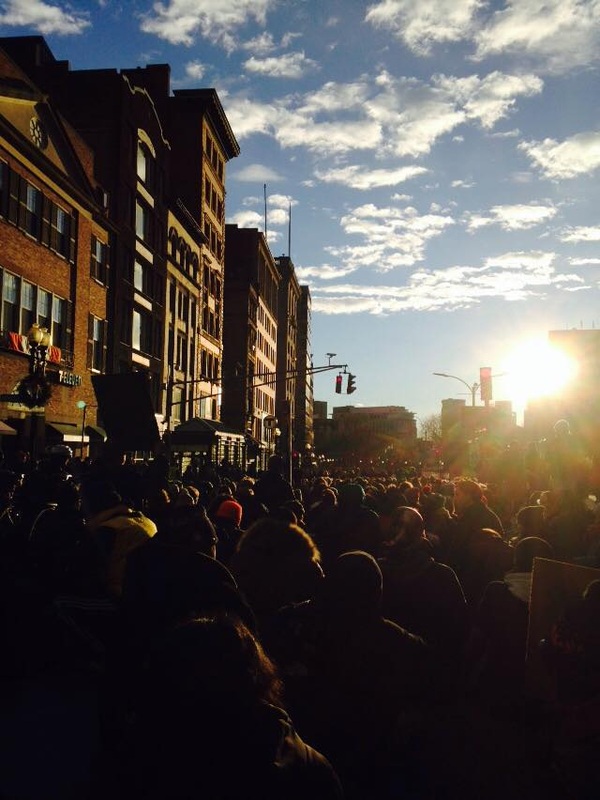

 RSS Feed
RSS Feed